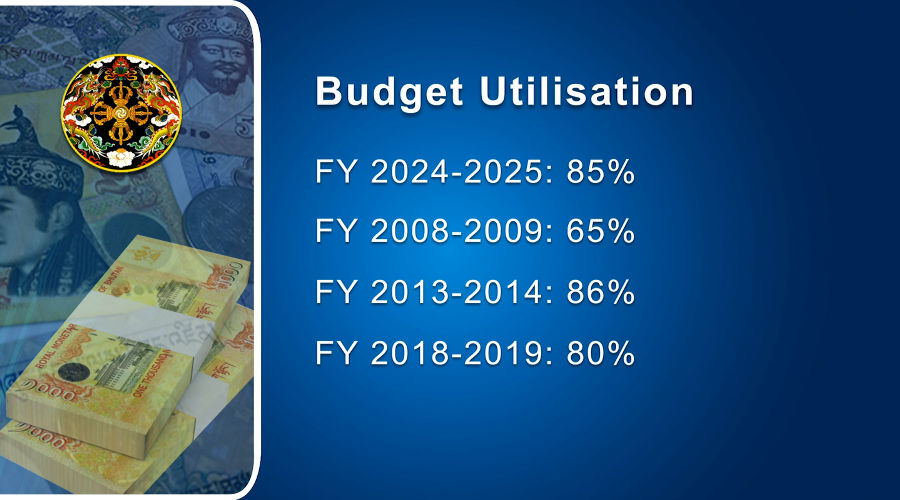 The Ministry of Finance has clarified that the capital budget underutilisation for the 2024–2025 Financial Year is 15 per cent and not 40 per cent as claimed by the Opposition Party. In a news release issued yesterday, the ministry explained that the Opposition’s figure was based on budget utilisation data available only up to the end of March this year.
The Ministry of Finance has clarified that the capital budget underutilisation for the 2024–2025 Financial Year is 15 per cent and not 40 per cent as claimed by the Opposition Party. In a news release issued yesterday, the ministry explained that the Opposition’s figure was based on budget utilisation data available only up to the end of March this year.
Earlier this week, during the press conference, the Opposition claimed that 40 per cent of the Nu 38.2bn capital budget remained unused, attributing the shortfall to limited human resources and weak budget planning.
However, the finance ministry clarified during the recent parliamentary session that around 80 per cent of the capital budget for the 2024–2025 financial year has been used.
According to the ministry, the 85 per cent budget utilisation in the financial year 2024-2025 is consistent with the trends seen in the first year of the past Five-Year Plans. The ministry stated that 65 per cent was utilised in 2008–2009, 86 per cent in 2013–2014, and 80 per cent in 2018–2019.
The finance ministry also stated that the government has initiated several strategic measures to enhance the effective utilisation of the capital budget for the 2025–2026 financial year.
According to the news release, the government has introduced several key strategies to improve capital budget utilisation and overall public financial management.
These include integrating mandatory financial indicators into the MAX System for Executives and P1 Chiefs, requiring agencies to utilise at least 90 per cent of their capital budget. This aims to promote responsible budget management and greater accountability.
In line with Parliament’s directive to implement Performance-Based Budgeting, all budgetary agencies are now required to revise and finalise their Annual Workplans for 2025–26 financial year based on the approved budget.
These work plans will serve as the basis for tracking both physical and financial progress and will directly inform future budget ceilings and allocations.
Additionally, the revised Procurement Rules and Regulations 2025 and updated Standard Bidding Documents, which came into effect this month, are expected to improve the efficient use of public resources, reduce fraud and corruption, and promote greater flexibility and innovation in the procurement process.
Responding to the Opposition’s concerns about human resource shortages, the finance ministry acknowledged the loss of experienced professionals. However, the ministry clarified that a decentralised recruitment system, authorised by the Royal Civil Service Commission, has enabled agencies to fill staffing gaps through time-bound and project-based contracts.
The ministry said that the clarification is intended to provide accurate information and help the public better understand the budget utilisation status.
Kinzang Lhadon
Edited by Sonam Pem








